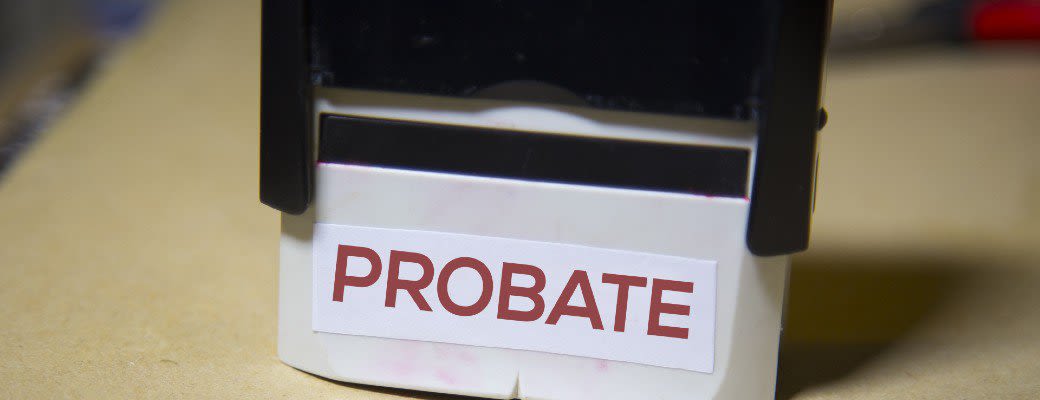
HOW TO HANDLE PROBATE DISPUTES
According to an EstateExec survey, more than 44 percent of respondents experienced or were aware of a family conflict or dispute during the estate settlement process. Settling the final affairs of the deceased and distributing assets to any heirs or inheritors can be a complex and emotional process. When a person dies, their will and estate may have to pass through the often complex process of probate. Unfortunately, disputes and family conflicts may arise during the probate or estate settlement process.
If you are involved in a probate dispute and want to understand your rights and legal options, it is imperative that you speak with a knowledgeable Arkansas probate and estate planning attorney for reliable guidance. At the Bond Law Office, our attorneys are committed to providing experienced legal services and reliable representation to family members, personal representatives, and executors involved in probate and estate settlement disputes. Our attorneys will help you understand your rights and offer you the comprehensive legal guidance and advocacy you need. We also proudly serve clients throughout Fayetteville, Fort Smith, Harrison, and the Arkansas River Valley area.
How Probate Works in Arkansas
Probate is a court-supervised process that is usually needed to settle the final affairs of the deceased. During probate, all the decedent's assets and real property are gathered and evaluated, debts and taxes are paid, and all heirs and beneficiaries are identified.
In Arkansas, the probate process starts by filing a petition for probate. If the decedent died with a will, a personal representative is appointed to administer the estate. However, if the person died intestate (without a will), an Arkansas court will appoint an administrator to act on the estate's behalf.
Once appointed, the personal representative will be required to take a detailed inventory of the estate's assets, including personal property, real estate property, bank accounts, and financial accounts such as bonds and stocks. The personal representative will also notify all parties with an interest in the estate, including family members, heirs, and creditors. The personal representative will pay debts and taxes owed, file a final income tax return, and distribute the remaining property to the heirs and beneficiaries.
What Are Some Common Probate Disputes?
It is not uncommon for problems or conflicts to arise during the probate process. Some of the most common probate disputes include:
A disputed or contested will
Accusations of influencing the deceased
Allegations of a breach of fiduciary duty
Large creditor claims
International assets or assets in other states
The executor is unable or unwilling to fulfill their role
Estate assets cannot be found
Will alterations
A joint inheritance disagreement
How to Contest a Will
Pursuant to Arkansas Code Section 28-40-113, “an 'interested person' may contest the probate of a will, or any part thereof, by stating in writing the grounds of his or her objection and filing them in the court.”
An "interested person" is someone who has something to lose or benefit from the lawsuit, such as a family member or heir of the deceased, a creditor, or a beneficiary under a previous version of the will. Valid grounds for contesting a will include:
Fraud - If you suspect trust fraud or that the person's handwriting or signature was forged or doctored.
Undue Influence - If you suspect undue influence, coercion, or manipulation, this may render the will null and void.
Mental Incapacity - If the will was created when the testator (owner of the will) was incapacitated or suffering from cognitive impairment such as Alzheimer's or dementia.
Executed Improperly - If the will was executed incorrectly or improperly by the administrator.
What Can Be Done to Resolve Disputes?
Probate disputes can be resolved through a variety of different actions depending on the circumstances of the dispute. These actions include:
Litigation - This requires a private judge or jury to help resolve the probate dispute or issue through the Arkansas court system.
Mediation - This requires all parties involved in the probate dispute to come together to discuss a possible resolution. A neutral third-party (mediator) can help facilitate or negotiate a compromise and resolve any lingering disputes.
Arbitration - This requires all parties involved to submit testimony and evidence to one or more arbiters, who will then decide a resolution.
Collaborative Law - This requires the parties involved and their attorneys, along with a neutral third-party (facilitator), to organize a settlement meeting in order to discuss the probate dispute or family conflict and determine a resolution.
Work with an Experienced
Arkansas Probate Attorney Today
Probate disputes and will contests often result in complex legal proceedings that can be very contentious. If you are involved in a dispute over probate or if you'd like to contest a loved one's will, it is crucial that you speak with a knowledgeable attorney as soon as possible so that they can protect your rights and provide reliable legal guidance.
Our skilled attorneys at Bond Law Office have devoted their careers to representing clients in complex probate and estate planning litigation, including probate disputes and will contest claims. As your legal counsel, we will investigate the details of your case, help you understand all of your legal options, and work diligently to address all of your concerns. Our team will offer you the detailed legal guidance you need and fight compassionately to protect your interests.
Contact the Bond Law Office today to schedule a free one-hour consultation with one of our experienced Arkansas probate and estate planning attorneys. Our team can provide you with the comprehensive legal counsel and advocacy you need to navigate your situation. We proudly serve clients across Fayetteville, Fort Smith, Harrison, and the Arkansas River Valley area — so reach out today to get started.
